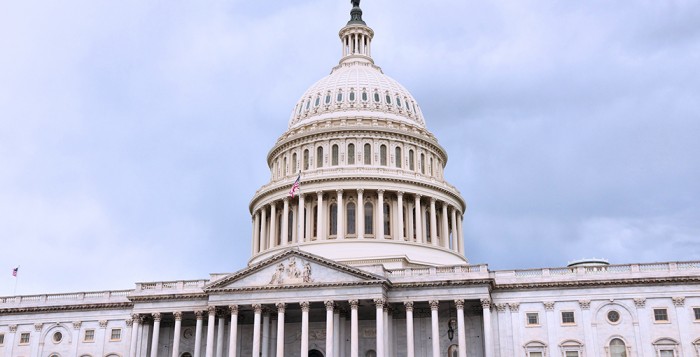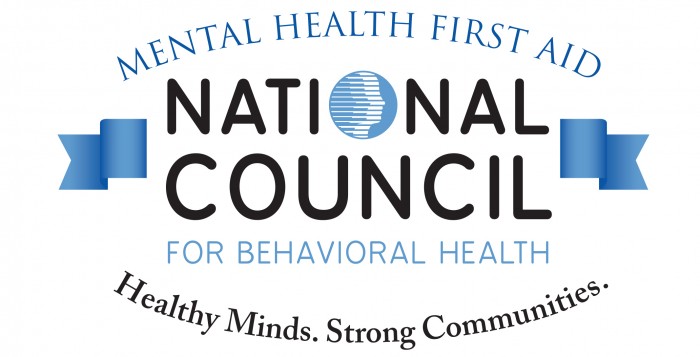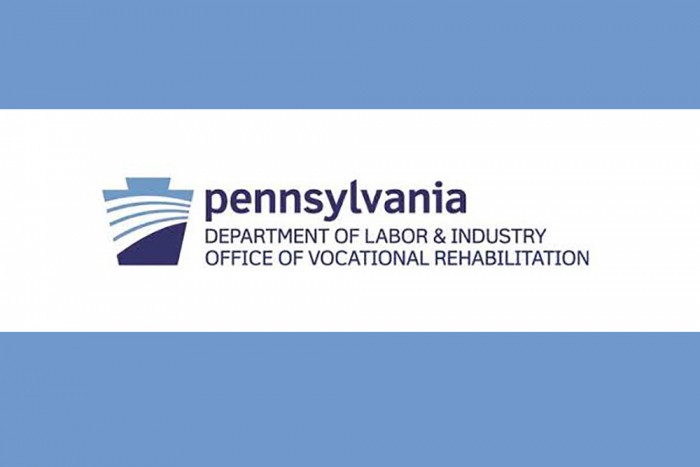The Centers for Medicare and Medicaid Services (CMS) and the Assistant Secretary of Preparedness and Response (ASPR) released a new COVID-19 Healthcare Workforce toolkit. The toolkit includes a variety of resources and tools for decision-makers managing health care challenges associated with the COVID-19 pandemic. The toolkit builds on the steps that CMS has taken to ensure health care facilities are fully staffed and equipped to treat COVID-19 patients as efficiently as possible. It also provides up-to-date best practices so that state and local health care decision makers have a resource to know what’s been implemented in the field and to find out how it’s working. The toolkit includes an assistance center, information exchange of case studies, and additional peer-to-peer communications.
Disability Rights of PA Seeking Public Comment
Monday, April 20, 2020, Disability Rights of Pennsylvania (DRP) started its 45-day public comment period for fiscal year 2021 annual program goals and objectives. DRP invites public feedback on the issues that matter most to individuals with disabilities, along with their families and organizations supporting them. June 4, 2020, will be the final day to offer public comments. DRP is hosting one live webinar (details TBD) to accept public comment. Keep up to date on our page and social media for more information on how to participate.
Specifically, DRP would like to hear your ideas about the impact of COVID-19, any associated advocacy that should be facilitated because of the virus, as well as current, new, and emerging issues since last year’s comment period:
- How we can ensure the protection of civil and human rights
- The training opportunities we should make available for people with disabilities, family members, and for people who provide supports and the general community.
DRP is the federally authorized protection and advocacy system in Pennsylvania to provide legal and advocacy services to persons with disabilities.
DRP staff works diligently statewide to:
- Improve disability service and social systems
- Work to ensure civil rights and to empower the community
- Provide technical and training assistance
We welcome your participation in this process and thank you for your time and input. Let’s continue this advocacy together.
– Thank you, from all of us at Disability Rights Pennsylvania
Wolf Administration Announces Business Loan Deferrals
FOR IMMEDIATE RELEASE
April 22, 2020
Harrisburg, PA – Today, Department of Community and Economic Development (DCED) Secretary Dennis Davin announced that the Pennsylvania Industrial Development Authority (PIDA), Pennsylvania Minority Business Development Authority (PMBDA), and Commonwealth Financing Authority (CFA) are deferring loans and that the maturity dates and amortization schedules of all applicable loans are extended by three additional calendar months.
“As we look to the future for a phased reopening of Pennsylvania’s economy, it is imperative that we provide relief to businesses affected by the administration’s stay-at-home order,” said Sec. Davin. “Businesses statewide have been cooperative and made sacrifices for the health and safety of their communities, and we are committed to supporting them through the next steps ahead.”
PIDA borrowers with payments due in April, May, and June of 2020 are deferred. All other terms and conditions of all applicable loans remain unchanged.
PMBDA borrowers with payments due in April, May, and June of 2020, including principal, interest, and any associated feeds are deferred. Accrual of interest that would be included with deferred payments is suspended. All other terms and conditions of all applicable loans remain unchanged.
CFA borrowers except for PENNWORKS loans, with payments due in April, May, and June of 2020, including principal, interest, and any associated fees are deferred. Accrual of interest that would be included with deferred payments is suspended. All other terms of all applicable loans remain unchanged.
DCED continues to update its website with financial and other resources.
Businesses seeking further guidance and clarification from DCED can also contact its customer service resource account at ra-dcedcs@pa.gov. For the most up-to-date information on COVID-19, Pennsylvanians should follow www.governor.pa.gov and www.doh.pa.gov.
MEDIA CONTACTS: Casey Smith, casesmith@pa.gov
###
PA House advances concurrent resolution to disapprove Gov. Wolf’s overtime regulation
By Chris Comisac
Bureau Chief
Capitolwire
HARRISBURG (April 22) – Back in February, readers will recall Capitolwire reported on the state Independent Regulatory Review Commission’s vote to approve regulations that seek to increase the earnings threshold below which certain individuals will be able to receive overtime payments from their employers.
New federal overtime regulations went into effect in January, increasing the aforementioned threshold and making 61,000 Pennsylvanian executive, administrative and professional (EAP) salaried workers newly eligible for overtime.
However, Gov. Tom Wolf’s administration, frustrated by the continued opposition by a Republican-controlled General Assembly to his desire to massively increase the state’s minimum wage hourly rate (from the current $7.25 to, ultimately, $15, with that then subject to annual rate-of-inflation adjustments), decided to push a plan to further raise the overtime threshold beyond the federal level. Senate Republicans had reached a deal with the Wolf administration to raise the hourly rate to $9.50 by 2022 in return for the overtime rule being scrapped, but House Republicans rejected the deal.
Instead of the current annual income threshold of $35,568, Wolf’s regulation raises it, by 2022, to $45,500 annually (with an automatic escalator every three years), which the administration estimates would initially make another 81,000 individuals eligible for overtime.
Many of Pennsylvania’s employers, both for-profit and non-profit, who have opposed the Governor’s minimum wage effort, also oppose the overtime idea, arguing it would be another devastating blow to the many employers who operate on the thinnest of profit margins, and make for a confusing regulatory environment, with different federal and state standards. Most Republican state lawmakers have sided with Pennsylvania’s employers.
On Tuesday, GOP legislators in the House employed the last option they have to prevent Wolf’s regulation from being implemented: the regulatory concurrent resolution.
As noted in Capitolwire’s February story, both legislative chambers can pass, by majority vote, a concurrent resolution rejecting the regulation. The Governor has the ability to veto that resolution, which would then require a two-thirds vote by both legislative chambers – within 30 calendar days or 10 legislative days, whichever is a longer period of time – to override that veto. Failure to do so will allow the regulation to be implemented.
However, while the concurrent resolution process is ongoing, the regulation is on hold.
There was a bit of a kerfuffle on Tuesday in the House prompted by Democratic claims the House could not consider the concurrent resolution, as it had failed to do so within the state Regulatory Review Act’s proscribed 10 legislative days “from the date on which the concurrent resolution has been reported” from committee (it was reported on Feb. 5).
However, Democrats were counting both the House’s non-voting and voting session days – which totaled 12, including Tuesday. House Speaker Mike Turzai, R-Allegheny, informed the Democrats that, as per House precedent set in 1988, only voting session days are considered – since the resolution could not be voted on non-voting session days – which made Tuesday the ninth legislative day since the resolution had been reported.
The Senate still has time to consider the resolution as Tuesday was the chamber’s eighth voting session day since Feb. 5. The Senate is currently on 12-hour call, but their session day schedule indicates their next session day is planned for May 4.
-30-
State of Washington COVID-19-Related Section 1115(a) Demonstration Approval
White House and Congress Reach Interim Coronavirus Funding Deal
Follow-up Materials From Project ECHO: COVID-19 Financial Response Strategy Session #1
(From the National Council for Behavioral Health)
Thank you for joining Project ECHO: National Council, COVID-19 Financial Response Strategy ECHO Series; Session 1 – Extending the Runway – Weekly Cash Flow Projections. We hope you found the session valuable and look forward to continuing this series to support you in the coming weeks.
Below you will find:
The session recording is now available. Please share with colleagues who may find it valuable.
If you haven’t already, please complete this brief survey about today’s session.
Register for our next session “National Council, COVID-19 Financial Response Strategy ECHO Series; Session 2 – Extending the Runway – Leveraging Stimulus/Relief Efforts”. This session will take place next Tuesday, April 28th at 1pm ET.
If you have any questions or concerns, please do not hesitate to contact us. Additionally, we are constantly updating our National Council COVID-19 resources website.
Stay safe!
NASDDDS and Advancing States Letter to Legislators
On behalf of the National Association of State Directors of Developmental Disabilities Services (NASDDDS) and ADvancing States, we are writing to request further support for state governments in the upcoming legislation regarding coronavirus disease 2019 (COVID−19). Our associations collectively represent the government agencies responsible for administering a wide range of publicly funded health care and long−term services and supports for older adults and people with all types of disabilities, including intellectual and developmental disabilities, in every state and territory. To maintain the ongoing sustainability of the long−term services and supports delivery system, there are four main issues that should be addressed immediately. We have also included two recommendations for issues that should be addressed in order to support state agencies once the pandemic begins to subside… [read full letter].
Assistance for Individuals with Disabilities in Need of Medical Care During COVID-19
Disability Rights Pennsylvania (DRP) is operating a Health Care Rationing Hotline during the pandemic. Individuals with disabilities, or family members or caregivers of individuals with disabilities, who experience discrimination in health care rationing, who are denied effective communication at the hospital, or who are prohibited from bringing a needed family member or staff with them in the hospital should contact DRP at 800-692-7443, ext. 402.
Please share this hotline widely. This is a 24/7 hotline answered by a disability rights attorney. This should be shared with anyone who might have the need to take a person with a disability to the hospital.
OVR Updates Guidance for Supported Employment Services
OVR issued a revised version of the OVR Supported Employment Guidance for Community Providers during COVID-19 (Revision 4.13.20). This amended guidance gives clarification/additional details for Discovery services, Phase 2, Phases 3-5 and Extended Services. OVR also issued a Frequently Asked Questions Document addressing Supported Employment Guidance during COVID-19.

















